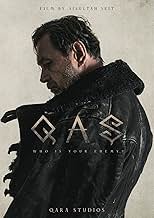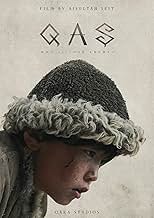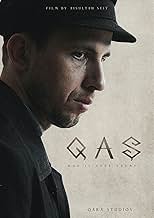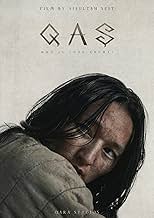Qas was grueling to watch from beginning to end. The cinematography was exquisite, I thought. The colors were unusually washed out, everything muted as if one were viewing old sepia-toned photographs. This was very effective in transporting the viewer to another time and place, here Kazakhstan in the 1930s. The program for the theater in which I saw Qas describes the film as a "historical horror trip in the Kazakh steppes", and Qas very truly is a sort of a horror film, with terrifying moments, suspense from the very beginning.
The suspense was very effectively maintained for me until about two-thirds of the way through the movie, after which I unfortunately found myself no longer caring so much about the principal characters. The cast is very effective, however the storyline is a seemingly unending series of "will Alim and Isatai live or die?" in a great variety of "is Alim still alive?", "has Alim run off?", "has Isatai run off?", "is that evil person really human? Are they immortal or perhaps not real, a symbolic representation of the famine? Why can't they be killed? If they can be killed why won't our protagonists kill them?"
Through more than half of the film I absolutely cared about these characters, but after a certain point my emotions had just been jerked back and forth too many times and the effect was simply waiting for the end of the film, an end which by this point the viewer knows is not going to be happy. There are a limited number of possibilities for the resolution of the central plot conflicts and as was expected the film chooses quite predictable means to wrap everything up. I was left kind of worn out, dissatisfied, wondering why I'd seen the film.
How to recommend this? "You know, the 1930s Bolshevik-created famine in Kazakhstan, like the famines in Ukraine and Russia, was horrific, really horrific. You want to know how horrible life and death in Kazakhstan in the 1930s could be? See Qas."



















